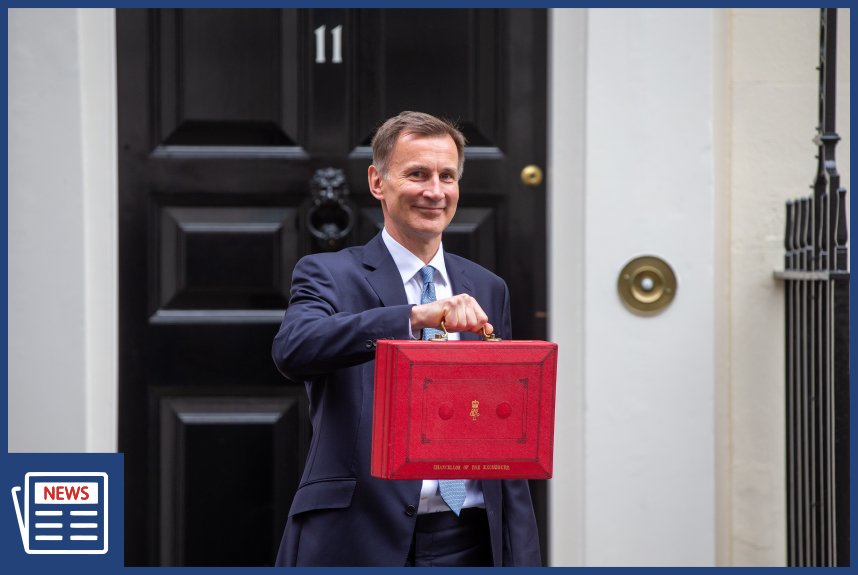New Statement Announcements and their Effect
As is now becoming the norm when it comes to Jeremy Hunt’s statements, we now always eagerly await the final “surprise” that we now seem to get! Prior to the Autumn Statement, a lot of the initial expectation was around changes to taxation, whether it be through business or personal deduction, but as it got closer to the speech, it became more and more apparent that instead, any key change for individuals would be related to National Insurance supporting the theme of affected positively on those at work, but we certainly didn’t expect the level finally announced.
National Insurance and Salary Sacrifice
For the self-employed, Class 2 National Insurance will be abolished from 6th April 2024. This set weekly sum is to support the availability to those individuals of benefits and State Pension, however the chancellor confirmed that these would still be available without the future requirement of contributions.
The chancellor also confirmed Class 4 National Insurance for the Self Employed will be reduced from 9 to 8% from 6th April 2024. This is from the start of the new tax year and therefore a different model to that of class 1.
The bigger announcement however was the reduction announced for Standard Class 1 Employee contributions reducing from the current level of 12% to 10%, not from the start of the next tax year but from the 6th of January 2024.
As a side note to this. do consider therefore the reduced saving for Salary Sacrifice Schemes that will occur due to the lower rate of National Insurance which should be confirmed to staff in these schemes, and while we discuss Salary Sacrifice, also consider eligibility to Salary Sacrifice due to the new NMW/NLW increases which we’ll discuss below.
There are no changes to Employers Class 1, Class 1a and 1b also remain unchanged at 13.8%.
A further key change will be to Directors who will remain on a blended rate for 23/24 due to the different rates now in the 2023/24 tax year, and therefore the blended rate of 11.5% should be used at the end of the tax year.
Employers National Insurance Relief
During the speech, the chancellor made several announcements around current and further Employer National Insurance reliefs. Veterans Relief continues for a further year from the 6th of April 2024. As such, continued Ers NI relief up to £50,270 for the first 12 months of initial civilian employment.
Freeports Relief has been doubled from 5 to 10 years, so currently now through to September 2031 and we therefore see continued Ers NI relief up to £25,000 per annum for the term of the relief under the current rules.
The more detail announcement confirmed the start of Investment Zone relief, and during the speech, the chancellor confirmed a further 4 locations in the UK as well as further developments. We’ll not be going through the final list but will await the final guidance on the process at which point we’ll confirm further detail.
Investment Zones were previous announced and confirmed, however, during the speech the chancellor confirmed the period of relief has doubled from 5 to 10 years. It had already been confirmed that areas under review were the West Midlands, Greater Manchester, the North-East, South Yorkshire, West Yorkshire, East Midlands, Teesside, and Liverpool. There will also be at least one in each of Scotland, Wales, and Northern Ireland.
Applications can attain access to £160million of support for a range of interventions including skills, infrastructure, tax reliefs and business rates retention and again this was double from the initial investment of £80m.
Employers NI relief will be up to £25,000 for new starters in these locations confirmed with very similar rules to Freeports.
- The employee must be a new hire whose employment starts on or after 6 April 2022 and before the applicable sunset date
- The employee cannot have worked for that employer (or an employer connected to the employer) in the previous 24 months
- The employee will spend a minimum 60% of their working time in the Investment Zone tax site
- Claim will expire 36 months from the employee’s start date.
To support the real-time management of the relief, the chancellor also confirmed four further National Insurance table letters to be used by employers from April:
Childcare
Although there are no specific payroll changes to childcare expected in 2024, the chancellor did reiterate the new scheme roll-out around free childcare hours in England which commences next year. Eligible households where all adults are working at least 16 hours, will receive 30 hours of free childcare not just for 3-and-4-year-olds, but for every child over the age of 9 months.
The 30 hours offer will now start from the moment maternity or paternity leave ends – rolled out in stages from 2024:
- 15 hours of free childcare for working parents of two-year-olds coming into effect from April 2024
- 15 hours of free childcare for working parents of nine months to three years old, from September 2024
- From September 2025, all eligible working parents of children aged nine months up to three years of age will be able to access 30 free hours per week.
National Minimum and Living Wage
The Government has continued with their policy for 2024/25 accepting increased percentage rises from The Low Pay Commission and the largest increase ever to the NLW. The new rates were announced pre-statement however were re-confirmed in the speech.
The National Living Wage therefore increases by its largest every rate of 9.8%. Importantly, the Apprenticeship rate continues to be aligned to the 16/17-year-old rate which also as with other rates increased by record levels.
The second stage of a review of the living wage which was delay by a year was also confirmed, reducing the age for NLW from the 1st of April 2024 bringing in two further age groups to the highest level of minimum pay. Employers should review the further cost and forecast for the 2024 year.
As is the normal now, the changes are effective from the 1st of April or the first full reference period on or after that date and the new rates are shown below:
The voluntary, or real living wage was confirmed earlier in the year with new rates applicable from the 24th of October 2023. As a real wage payer, the rules on application are that the increase must be in place with employees within 6 months of the initial date.


